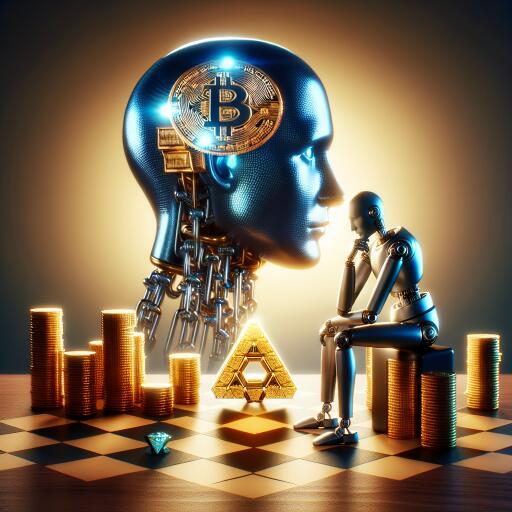The $200M Bet on AI Meeting Blockchain
In the rapidly evolving world of technology, the security and privacy risks associated with centralized digital architectures are becoming increasingly apparent. The susceptibility of AI’s main cloud servers to breaches, or the potential hacking of any other components within the supply chain, poses a significant concern for millions. Could blockchain technology be the answer to these challenges, offering a decentralized and secure foundation for AI operations?
Venture capitalists have shown remarkable interest in merging AI with blockchain technology, with an impressive $207 million invested in 14 AI startups over a mere 96 hours, reported by Bitcoin.com News. Among these, Sentient Labs raised an astonishing $85 million with backing from prominent investors like Peter Thiel. Although many companies are exploring the integration of AI into blockchain, the Internet Computer Protocol (ICP) stands out as the sole operational network achieving this feat to date.
The concept of Decentralized AI (DeAI) is emerging as a solution, suggesting the use of blockchain for AI training and processing. This methodology promises enhanced transparency, enabling users to verify the models’ inputs, thus minimizing blind trust.
AI on Distributed Ledger Technologies
Charles Adkins, President at Hedera, discusses the potential of running AI on blockchain networks. He emphasizes AI’s pivotal role in optimizing mining operations, enhancing security, and analyzing market trends. Distributed ledger technologies (DLT) are poised to revolutionize the integration of AI into consumer technology by offering secure, and transparent records.
Adkins identifies supply chain management, financial services, and healthcare as prime sectors where AI and blockchain can intersect beneficially. The amalgamation of these technologies can lead to improvements in accountability within supply chains, fraud detection in financial services, and the management of patient data in healthcare.
The Challenges of Integrating AI into the Blockchain
However, the ambition faces hurdles, notably the substantial computing power and energy demands of AI. As AI models like GPT-3 become more complex, the environmental and energy implications grow. Stanford University highlighted the tremendous energy requirement for training these models, sufficient to power an average American home for over a century. Lars Nyman from CUDO Compute addresses these issues, suggesting a marketplace for underutilized computing resources as a sustainable and efficient solution.
Nyman and other experts believe in the groundbreaking potential of combining AI with blockchain technology. Innovations such as the Internet Computer Protocol and the CUDOS platform are spearheading efforts towards making this integration a reality.
Brian Liang from Aelf shares an optimistic view on the future integration of AI within blockchain. With Aelf’s upcoming V2 upgrade, the focus will be on enhancing the blockchain’s scalability, efficiency, and security through AI capabilities.
Jiahao Sun from FLock.io emphasizes that AI on the blockchain offers unmatched safety and transparency. Innovations like parameter-efficient fine-tuning are being developed to tackle integration challenges, signaling a shift towards more practical and decentralized AI implementations.
The Bottom Line
Despite existing challenges such as computational demands and scalability, the integration of AI and blockchain is forging ahead with promising solutions. This merging of technologies aims to create a more secure, transparent, and user-centric tech landscape.
The $200 million investment in AI-block of 14 startups is not just an endorsement of the potential of AI on the blockchain but a strong signal of the revolutionary changes on the horizon. As companies continue to innovate, the dream of a decentralized, trustworthy AI becomes increasingly attainable.
The integration of these powerful technologies could redefine our technological landscape, making it safer and more equitable for users worldwide. The journey towards this future is on, with experts, innovators, and investors alike eager to see how far AI and blockchain can go together.










